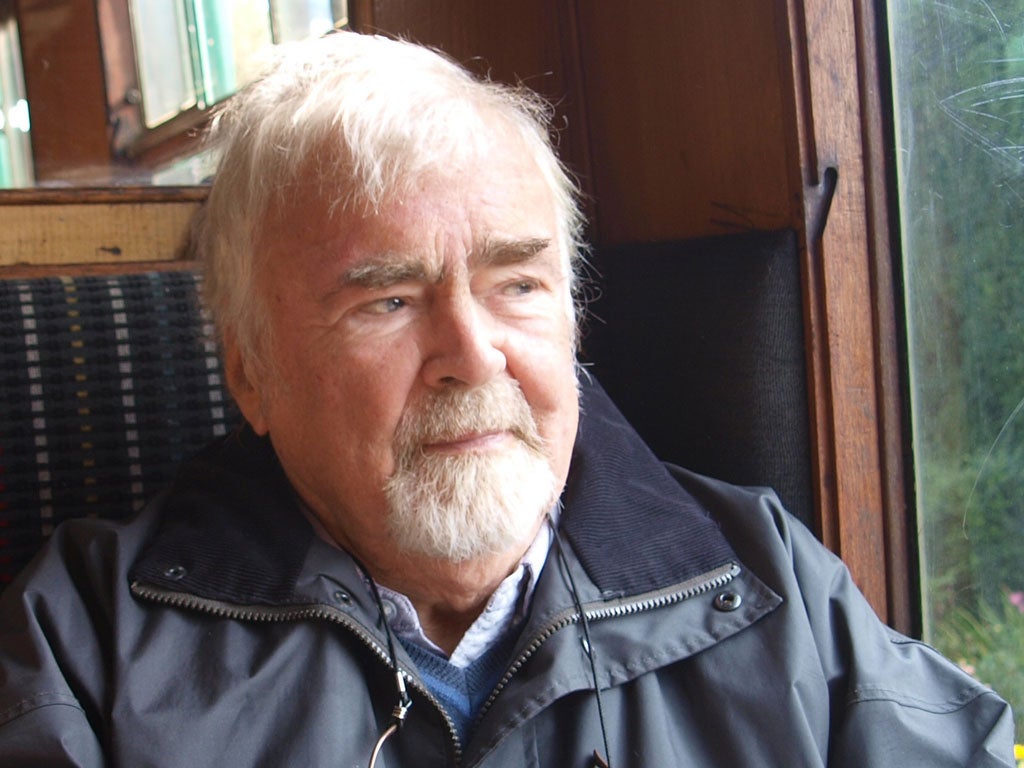
Your support helps us to tell the story
From reproductive rights to climate change to Big Tech, The Independent is on the ground when the story is developing. Whether it's investigating the financials of Elon Musk's pro-Trump PAC or producing our latest documentary, 'The A Word', which shines a light on the American women fighting for reproductive rights, we know how important it is to parse out the facts from the messaging.
At such a critical moment in US history, we need reporters on the ground. Your donation allows us to keep sending journalists to speak to both sides of the story.
The Independent is trusted by Americans across the entire political spectrum. And unlike many other quality news outlets, we choose not to lock Americans out of our reporting and analysis with paywalls. We believe quality journalism should be available to everyone, paid for by those who can afford it.
Your support makes all the difference.Eric Roseberry enriched the world of music in a variety of ways. He was a lecturer, writer, scholar, organist, broadcaster, teacher, pianist, conductor, editor and enthusiast, the sheer breadth of his intellect making him an inspirational guide for generations of aspiring musicians.
Evacuated to Yorkshire from his native North-east during the Second World War, Roseberry was educated at Pocklington School before, in 1948, reading Music at the University of Durham. Following National Service in the Royal Air Force, his teaching career began in 1953 at Stand Grammar School for Boys in Whitefield, Manchester. Five years later he moved to Huntingdonshire as County Music Organiser.
Between 1964 and 1969, generally planning and producing orchestral programmes for the BBC's music division, he worked in London as a Music Assistant. In 1969 he was appointed Radcliffe Lecturer in Music at the University of Sussex. His brief, placing contemporary ideas firmly at its heart, was to design and launch a brand new and progressive degree course in music.
Much of what he taught he practised in his own compositions. A fastidious though never prolific composer, hisinstrumental and choral works are all cleverly and precisely imagined, their structures handled with fluency and care. First published in 1969, The Faber Book of Carols and Christmas Songs brings together the many disparate elements in his technique, all handled with the skill of a master craftsman
Erudite and persuasive, Roseberry also proved to be a fine writer. Having cut his literary teeth writing programme notes for BBC orchestral concerts, over the years he contributed a wealth of scholarly articles to a wide range of periodicals including Music and Musicians, The Musical Times, The Listener, Music and Letters, The Musical Quarterly and Tempo. Likewise, his sleeve notes, literate, elegant and stylish, increasingly graced the catalogues of all the major record companies.
Remaining models of clarity are two early studies of composers, Mozart and Beethoven. Published by Boosey and Hawkes in 1960, these both formed part of their Great Masters series. In 1976, as the centrepiece of a symposium on German music, his extended essay on Schoenberg and Hindemith undoubtedly added further lustre to an already burgeoning reputation.
In the interim had come many scholarly and perceptive essays illustrating varied aspects of the output of Benjamin Britten. Both an early and active devotee of his music and a long-standing personal friend, here, as always, his expertise and insights remain unsurpassed. In addition, his scholastic credentials also found a ready outlet as a lecturer at the Britten-Pears School for Advanced Musical Studies, based at Aldeburgh on the Suffolk coast.
An equally enduring legacy will be his extensive contribution to ourunderstanding of the Russian composer, Dmitri Shostakovich. Amongmany definitive texts, his doctoraldissertation formed the basis of his book Ideology, Style, Content and Thematic Process in the Symphonies, Cello Concertos and String Quartets of Shostakovich, published in 1989. A contributor to the Cambridge Companion to Shostakovich, appearing in 2008, two years earlier he had been the keynote speaker at the Shostakovich International Centenary Conference held at the University of Bristol.
In 1972, Roseberry moved into teacher training as Senior Lecturer at Newton Park College, Bath. There, at what was later to become Bath Spa University, his expertise helped create a noted centre of excellence in music education. In addition to exercising a most benign influence on generations of aspiring music teachers, he also played a pivotal role in the artistic life of the wider cultural community.
A Lecturer in the Extra Mural Department of Bristol University for 12 years, between 1977 and 1989, he also conducted Bath Symphony Orchestra. That year, drawing on some of the finest chamber musicians in the locality,he founded and nurtured the Apollo Ensemble. Eight years later, initially keen to explore the cantata repertoire, he brought together The Marshfield Singers.
Latterly, never one to let his keyboard technique fall victim to neglect, alongside his regular locum duties as a relief organist, his musicianship helped illuminate the majestic splendour of Dyrham Park.
Kenneth Shenton
Eric Norman Roseberry, musician and scholar: born Sunderland 18 July 1930; married firstly Elspeth Campbell (four daughters), secondly Jill Sharp; died Bath 26 February 2012.
Join our commenting forum
Join thought-provoking conversations, follow other Independent readers and see their replies
Comments